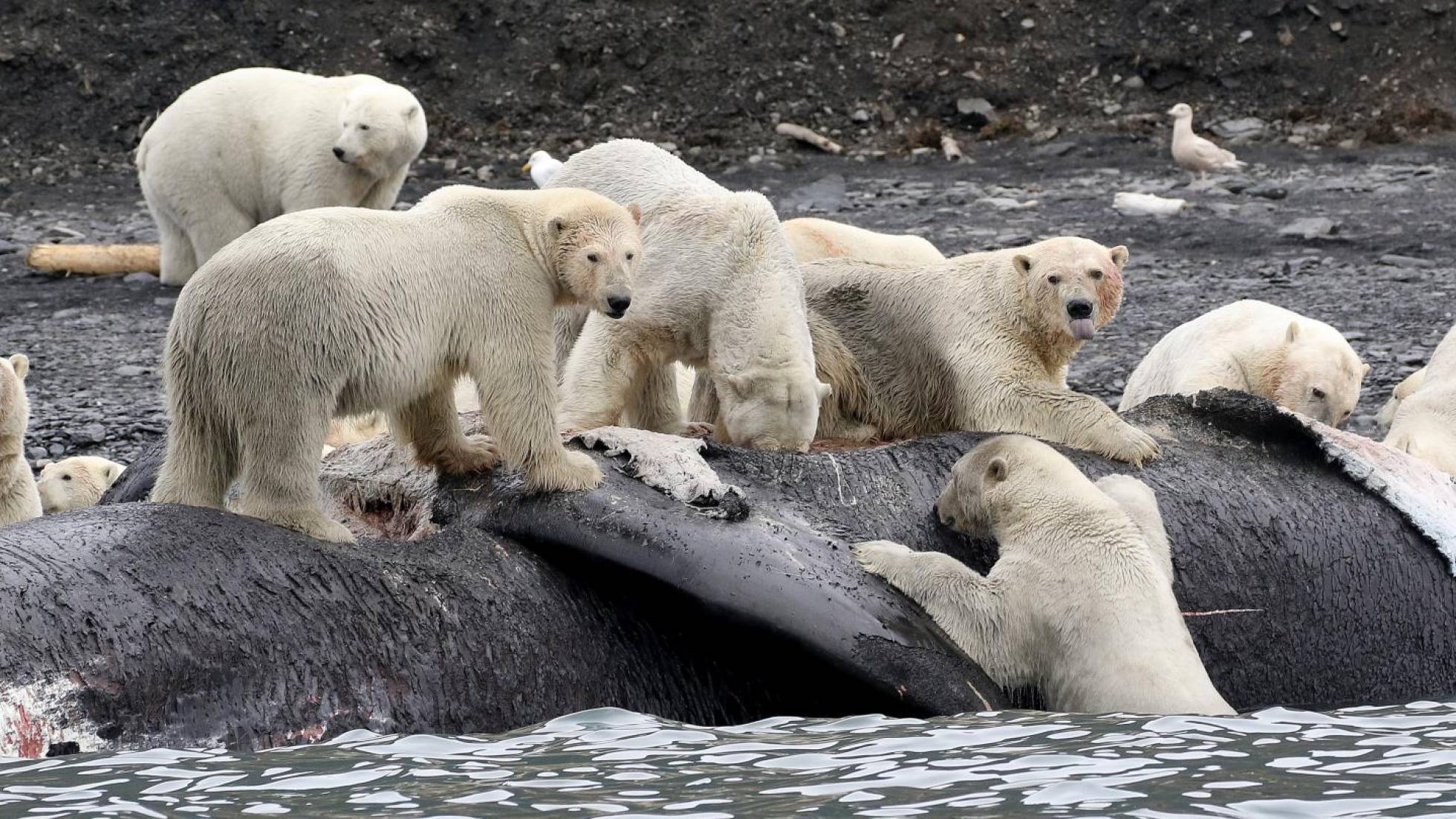What Can the Gut Microbiome tell us about Polar Bear Health?

Polar bears are highly vulnerable due to climate change-induced sea ice decline, as it reduces their access to their primary source of prey, ice-obligate ringed seals. As a response, some bears have altered their foraging behavior by increasing their use of onshore food resources such as subsistence-harvested bowhead whale carcasses, shorebirds, and shorebird eggs. Dietary shifts can have significant health impacts for a species, including altering the host gut microbiome, which is an assemblage of microorganisms (predominantly bacteria) known to carry out many important metabolic and immune system processes for their host organism. To date, the gut microbiome is relatively understudied for many wild populations and species. Our work aims to preliminarily describe and compare the composition and diversity of gut microbial communities of southern Beaufort Sea and East Greenland polar bears, and further build from this knowledge by assessing how differences in the respective diets of these geographically disparate subpopulations might be alternately shaping their gut microbiota.
Megan Franz is an MSc student from McGill University working on this project for her thesis. She is supervised by Dr. Melissa McKinney, an Assistant Professor in the Department of Natural Resource Sciences at McGill University and Canada Research Chair in Ecological Change and Environmental Stressors, and is co-supervised by Dr. Lyle Whyte, a Professor in the Department of Natural Resource Sciences at McGill University and Canada Research Chair in Polar Microbiology. The project also involves collaboration with colleagues Kristin Laidre from the University of Washington and Todd Atwood from the USGS Alaska Science Center.
2020-03-02
